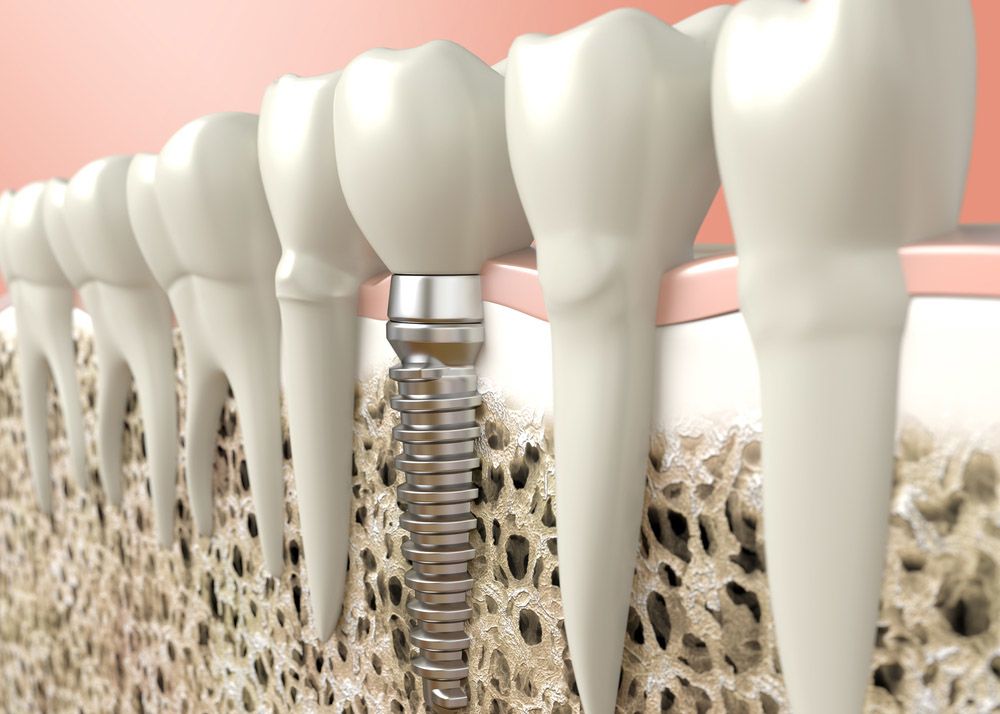Those who have missing teeth should consider the long-term risks that tooth loss poses. Missing teeth do far more than compromise the appearance of the smile. They weaken a patient’s bite, interfere with oral functions, and threaten the structure of the surrounding teeth and jawbone. The only way to avoid these complications is to treat tooth loss as soon as possible. Dental implants provide a strong, durable solution for missing teeth. When paired with restorations, dental implants come the closest to mimicking the natural teeth. Because of their many benefits, dental implants are the best treatment for tooth loss.
Unfortunately, not all patients are ideal candidates for dental implants. Certain health conditions, such as autoimmune diseases, may interfere with the success of dental implant treatment. Here, Dr. Damon discusses dental implants and autoimmune diseases, and whether our Fort Worth, TX patients can receive dental implants if they suffer from autoimmune conditions.
What Are Autoimmune Diseases?
Autoimmune diseases are illnesses that cause the body’s immune system to attack and damage its own tissues. This can result in symptoms such as inflammation and pain. There are several different types of autoimmune diseases. Some of the most common include the following:
- Rheumatoid arthritis
- Lupus
- Multiple sclerosis
- Type 1 diabetes
- Celiac disease
Am I a Dental Implant Candidate if I Have an Autoimmune Disease?
When determining dental implant candidacy, we take into account many factors. It is important that patients exhibit good oral health, be in good overall health, and have a substantial base of healthy jawbone tissue to support the implants. These criteria are important because they ensure that dental implant treatment will be a success.
To provide strong and durable support for dental restorations, dental implants must fuse with the jawbone. This process, which is known as osseointegration, takes place over several weeks, while the patient heals from implant surgery. If osseointegration fails to occur, then the implants will not be able to support a dental restoration. Dr. Damon is careful in his selection of dental implant candidates because he wants to avoid dental implant failure.
Some studies have linked autoimmune diseases to an increased risk of dental implant failure. The inflammation that is a common side effect of autoimmune diseases can make it difficult for the gums to heal, and for dental implants to fuse with the jawbone. However, an autoimmune disease may not automatically disqualify a patient as a dental implant candidate. Patients should discuss their specific condition with Dr. Damon and their general physician to determine if they may be suitable candidates for dental implant treatment.
Schedule an Appointment
Dental implants restore a strong and beautiful smile while allowing patients to avoid many oral health complications. If you have suffered from tooth loss and are interested in rebuilding your smile with dental implants, schedule an appointment at your earliest convenience. Dr. Clark Damon can examine your teeth and gums to determine if dental implant treatment is right for you.
